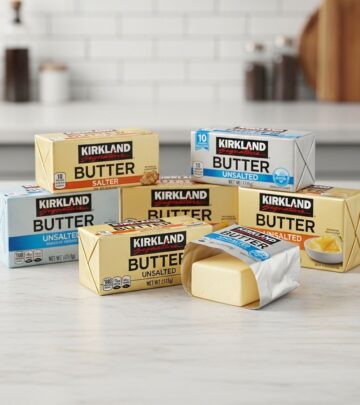Nationwide Carrot Recall 2024: E. Coli Outbreak Linked to Grimmway Farms Organic Carrots
What consumers need to know about the November 2024 nationwide recall of organic carrots due to E. coli, including health risks, affected products, and safety recommendations.

Nationwide Carrot Recall 2024: What Happened?
In November 2024, a multistate outbreak of Shiga toxin-producing E. coli O121:H19, traced to organic whole and baby carrots sold by Grimmway Farms, prompted a nationwide recall in the United States. The recall was initiated after increasing reports of E. coli illnesses, resulting in hospitalizations and, tragically, at least one reported fatality among vulnerable individuals. Officials from the Centers for Disease Control and Prevention (CDC), the Food and Drug Administration (FDA), and local health departments quickly mobilized to investigate and respond to the threat.
Timeline and Scope of the Recall
November 16, 2024: Grimmway Farms officially announces the voluntary recall of various bagged organic whole and baby carrots, citing potential E. coli O121:H19 contamination. The recall covers products distributed across the country and potentially present in consumer homes.
- Recall Expansion: On November 21, additional bag sizes and product lines were added to the recall as the investigation continued and new information was discovered.
- States Affected: Cases linked to the outbreak were confirmed in at least 18 states, including Arkansas, California, Colorado, Massachusetts, Michigan, Minnesota, Missouri, North Carolina, New Jersey, New York, Ohio, Oregon, Pennsylvania, South Carolina, Texas, Virginia, Washington, and Wyoming.
- Product Availability: While affected products were likely removed from store shelves by late November, consumers were urged to check refrigerators and freezers, as carrots may still be present in many households.
Which Carrot Products Were Recalled?
The recall covered a broad range of organic whole and baby carrots marketed under multiple brand names. Both consumer-sized and bulk packages were affected, mainly those distributed from August through October 2024, with varying best-if-used-by dates. Specific brands and sizes included:
- Bunny Luv (1lb, 2lb, 5lb, 10lb, 25lb bags)
- Cal-Organic (1lb, 2lb, 5lb, 6lb, 10lb bags)
- Grimmway Farms (various bag sizes for both whole and baby organic carrots)
| Brand | Product | Bag Sizes | Dates Sold |
|---|---|---|---|
| Bunny Luv | Organic Whole Carrots | 1lb, 2lb, 5lb, 10lb, 25lb | Aug 14 – Oct 23, 2024 |
| Cal-Organic | Organic Whole Carrots | 1lb, 2lb, 5lb, 6lb, 10lb | Aug 14 – Oct 23, 2024 |
| Grimmway Farms | Organic Baby Carrots (bagged) | All retail sizes | Best-if-used-by: 9/11/2024 to 11/12/2024 |
Note: Bags of whole organic carrots did not necessarily have best-if-used-by dates, making consumer awareness and recall vigilance especially important.
Symptoms of E. Coli O121:H19 Infection
Escherichia coli (E. coli) O121:H19 is a dangerous bacterium that produces harmful Shiga toxins. Infection can range from mild to life-threatening, especially in young children, the elderly, and individuals with weakened immune systems. Typical symptoms appear within 1 to 10 days after consuming contaminated food, often within 3 to 4 days on average.
- Severe stomach cramps
- Diarrhea (often bloody)
- Fever
- Nausea and vomiting
Most people recover within a week, but complications can arise, including:
- Hemolytic Uremic Syndrome (HUS): A type of kidney failure most common in children and older adults, sometimes leading to long-term health issues or death.
- Other Serious Consequences: Chronic kidney disease, high blood pressure, and neurological issues can develop in severe cases.
How Many People Were Affected?
As of November 27, 2024, at least 39 confirmed cases were reported across 18 states, with 15 hospitalizations and one fatality involving an adult over 65 with underlying health conditions. The number may continue to evolve as the CDC and FDA collect more data.
Of particular note:
- Of the 27 people interviewed, 26 (96%) recalled eating carrots prior to illness, reinforcing the epidemiological link to the recalled products.
- Retailers were instructed to notify customers and remove recalled products from shelves and inventory promptly.
What Should Consumers Do?
- Check your fridge and pantry: Identify any Grimmway Farms, Cal-Organic, or Bunny Luv organic whole or baby carrots bought between August and November 2024.
- Dispose or return: Immediately throw out or return any recalled carrots, even if you have already consumed some and did not become ill.
- Wash and sanitize: Clean any containers, bins, or surfaces that may have come into contact with the recalled carrots to prevent cross-contamination.
- Consult a healthcare provider: If you develop symptoms of E. coli infection—especially severe diarrhea, cramps, or fever—seek medical attention promptly and specify your exposure to recalled carrots.
Retailer and Distributor Guidance
Retailers and distributors with recalled products in inventory were advised to:
- Remove and discard all affected products, including from bulk bins.
- Sanitize display areas and bins to eliminate any contamination risk.
- Notify customers, especially if product tracing was incomplete.
What Is Being Done to Ensure Public Safety?
The FDA and CDC are collaborating with local public health agencies to track the outbreak’s origins, monitor ongoing cases, and expand recalls if needed. Ongoing efforts include:
- Ongoing traceback investigation to determine where contamination occurred in the supply chain.
- Increased surveillance and reporting of new cases linked to the outbreak.
- Continuous updates for retailers and consumers as new information becomes available.
- Public health notifications and advisories to prevent further illnesses.
Frequently Asked Questions (FAQs)
Q: Are the carrots currently sold in grocery stores safe to eat?
A: Yes, the recalled batches should have been removed from store shelves by late November 2024. However, consumers should check at home, as affected carrots may still be in refrigerators or freezers.
Q: How can I tell if my carrots are part of the recall?
A: Check for the brand (Bunny Luv, Cal-Organic, Grimmway Farms), product type (organic whole or baby carrots), and purchase dates from August to October 2024. For baby carrots, best-if-used-by dates range from 9/11/2024 to 11/12/2024.
Q: What should I do if I have eaten recalled carrots and feel fine?
A: If you remain symptom-free after ten days, you are unlikely to become ill. However, dispose of or return any remaining product and monitor for symptoms for at least ten days.
Q: Who is at most risk from E. coli O121:H19 infection?
A: Young children, the elderly, pregnant people, and those with weakened immune systems face the highest risk for complications such as hemolytic uremic syndrome.
Q: How can I prevent E. coli infection from produce in the future?
A: Wash produce thoroughly, refrigerate perishable items promptly, and follow all recall advisories. However, recall-related outbreaks can occur even with proper handling, so following public health alerts is essential.
Lessons and Implications for Food Safety
This nationwide recall underscores the importance of rapid detection, clear communication between health authorities and the public, and ongoing vigilance around fresh produce safety. Key takeaways include:
- The need for swift product recalls and transparent consumer notifications in outbreak situations.
- Continued importance of food safety protocols at every stage from field to table.
- The value of prompt reporting and cooperation with public health investigations to limit the spread and impact of foodborne illnesses.
Contact and Reporting
- Grimmway Farms Call Center: (866) 912-9552 (8 am – 8 pm EST, 7 days a week) for questions about the recall or to report possession of affected products.
- General Outbreak Information: Visit the FDA and CDC websites for the latest investigation updates.
- Reporting Illness: If you suspect foodborne illness, contact your healthcare provider and report to local or state public health authorities.
References and Updates
This article contains the latest information available as of late November 2024. Public health guidance may change as the investigation continues. Readers should monitor official CDC and FDA resources for any new developments in the recall or outbreak status.
References
- https://www.grimmway.com/grimmway-farms-recalls-organic-whole-and-select-organic-baby-carrots-that-may-be-in-consumers-homes-due-to-potential-e-coli-contamination/
- https://doh.wa.gov/you-and-your-family/illness-and-disease-z/foodborne-illness/outbreaks/2024-e-coli-multi-state-outbreak-linked-organic-carrots
- https://www.contagionlive.com/view/e-coli-outbreak-prompts-nationwide-recall-of-organic-carrots
- http://publichealth.lacounty.gov/phcommon/public/media/mediapubhpdetail.cfm?prid=4878
- https://www.fda.gov/safety/recalls-market-withdrawals-safety-alerts/grimmway-farms-expands-recall-include-additional-bag-sizes-due-potential-e-coli-contamination
- https://www.health.state.mn.us/news/pressrel/2024/ecoli111824.html
- https://www.cdc.gov/ecoli/outbreaks/investigation-update-e-coli-o121.html
- https://www.cdc.gov/ecoli/outbreaks/e-coli-o121.html
Read full bio of Sneha Tete












